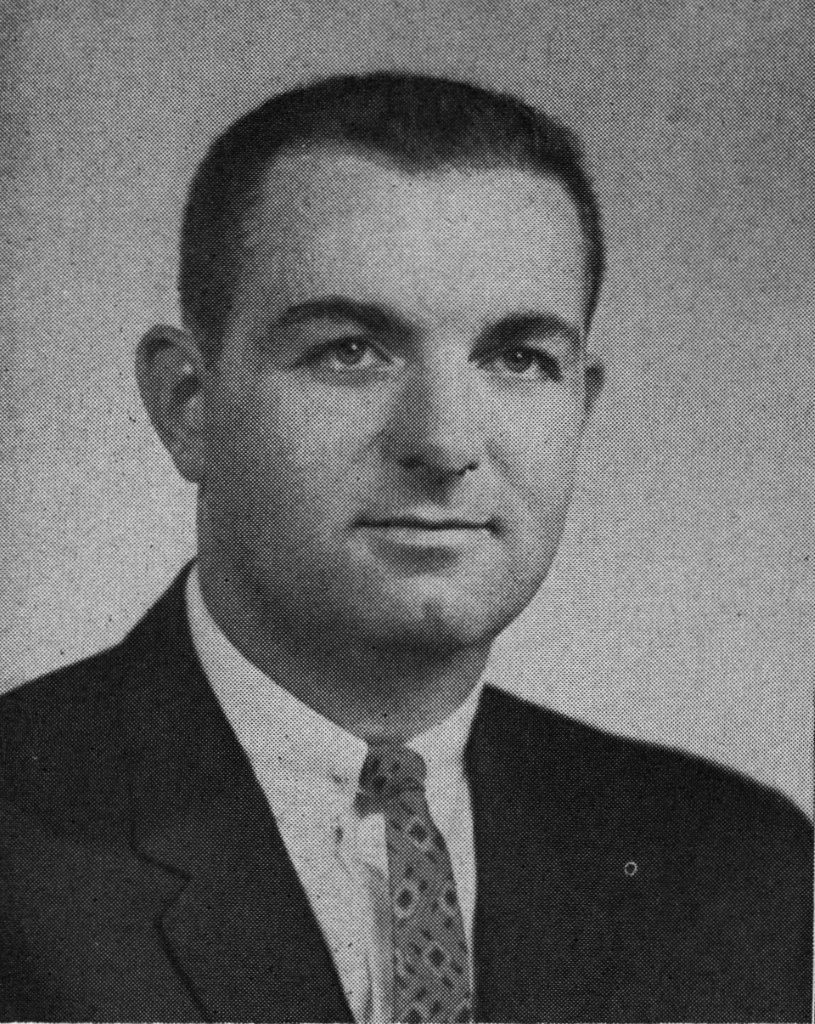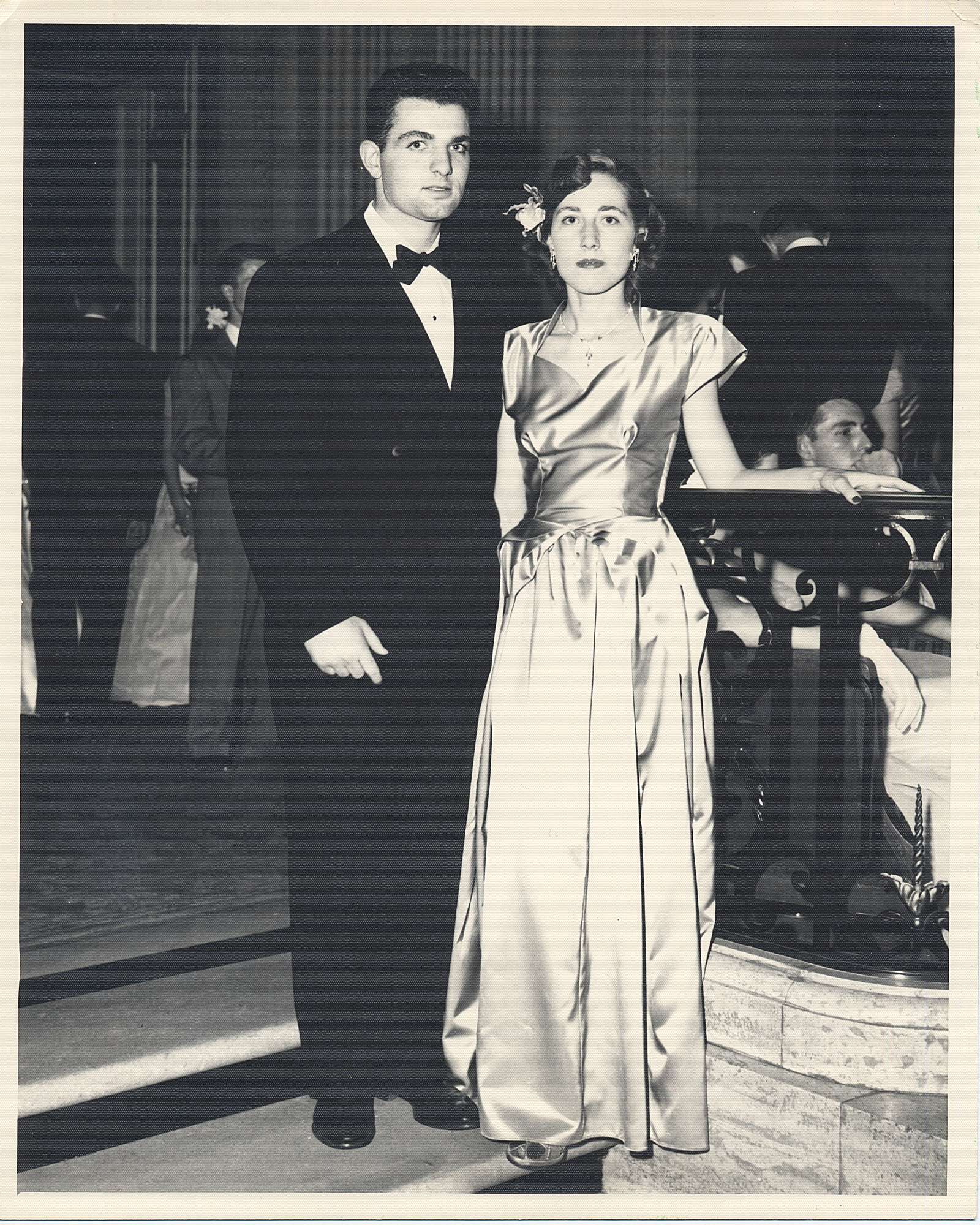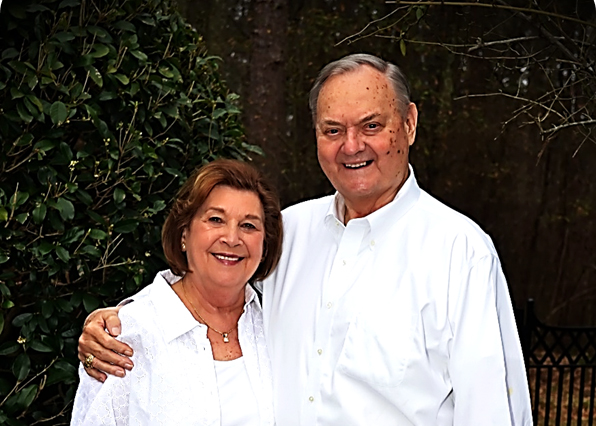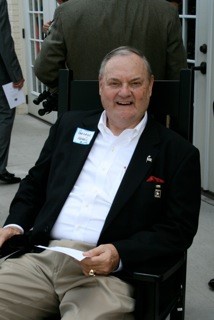Chapter Eternal
Chapter & Alumni News
Edward Forester (1926 - 2014)

A longtime volunteer at Gamma Beta Chapter, Brother Ed Forester used his trademark leadership style to pioneer national alumni programs, all the while mentoring multiple generations of young Sigma Nu brothers.
As a member of the High Council, Forester pushed to get collegiate representation on the High Council, and was later instrumental in developing early versions of the fraternity’s national alumni volunteer program.
In 1965, Brother Edward Forester (Northwestern) was among a core group of Gamma Beta alumni who accepted the difficult challenge of rebuilding their chapter from the ground up. He would go on to serve as president of the Northwestern alumni interfraternity council for six consecutive terms. In the 1970s, he was the only non-faculty member to serve on the Northwestern’s presidential advisory commission, a role he held for seven years.
Ed was a guiding force at Gamma Beta Chapter, through the best of times when the chapter was thriving and at the worst of times when alumni were forced to close the house in 1967. “The decision to again suspend the charter in 2004 was probably the most difficult thing for Ed to endure,” recalls Ben Buetell, president of the Gamma Beta alumni chapter. But Ed never wavered in his commitment to Sigma Nu and his desire to see Gamma Beta return to Northwestern.
Brother Forester served as president of the Gamma Beta House Corporation and remained on the board for over 30 years up until his passing. Brother Forester played an instrumental role in the refurbishment of the Gamma Beta chapter home leading up to the chapter’s centennial celebration in 1998. His role in securing substantial resources in support of the chapter continued through the recent recolonization and up to his passing.
As a member of the High Council, Brother Forester was tasked in 1973 by then Executive Secretary William Amiott to study the existing alumni relations programs in place at the time. The findings of this study were presented to the High Council, upon which two plans were recommended for further study. The High Council proceeded with plans to establish a network of alumni organized into 53 divisions, which would become a foundation for the alumni volunteer program we have today.
“He did what he thought was right and he avoided playing politics. He was a plotter, always moving ahead.”
Brother James Truesdale, speaking at the 1972 Grand Chapter in Dallas, spoke on Ed’s behalf before High Council elections. “Ed has served diligently his Fraternity since he was active in the collegiate chapter and then on into his alumni chapter,” he said.
“Ed has served many years with great distinction as a Division Commander in the Midwest,” Truesdale continued. “Ed has served as unselfishly and as devotedly as any man that I know in many, many happy experiences and friendships through Sigma Nu Fraternity. Ed is a devoted husband, father, and a very accomplished businessman.”
Brother Forester’s contributions to Sigma Nu are perhaps best summarized by one collegiate delegate speaking on his behalf during High Council elections in 1976. Brother Lee Stetson: “He has done a fine job in developing a program for us to use nationally to salvage chapters that are in deep trouble, and I think this is something that we all feel is an important aspect of development of our Fraternity.”
Brother Stetson continued: “Secondly, Brother Forester strongly supported the idea of adding Collegiate Grand Councilmen to the High Council so that we have input from the undergraduates during the various meetings of the High Council.”
What Brother Stetson said next again highlighted Ed Forester’s visionary thinking, in this case foreseeing the need to develop educational programs that would become the early stages of Sigma Nu’s award-winning leadership development programs. “He’s also been involved actively with the more recent trend toward educational effort of our Fraternity,” Stetson observed. “Specifically, he’s been a member of our Mini-University faculty since its inception.”
Brother Forester became known as someone who would listen carefully, particularly during challenging debates for the fraternity. He reiterated this commitment during one of his speeches for High Council positions. “One of the first things my father said to me that I can recall is that you never learn by talking; only by listening,” he explained during the 1972 Grand Chapter in Dallas. “This has been my philosophy of life. I hope to be able to listen, to interpret, and to act upon your wishes in the best way I can.”
“Because of my father’s involvement with Sigma Nu, I could see how the fraternity formed meaningful connections that continued later in life.”
This ability to listen, combined with resolute decisiveness, were signature traits of Brother Forester’s leadership style. “He would listen and make up his mind,” recalls Jeff Forester, Ed’s son and fellow Sigma Nu. “When he made up his mind he had a motivating personality. He did what he thought was right and he avoided playing politics. He was a plotter, always moving ahead.”
Brother Forester was also quick to remind the Grand Chapter of the High Council’s priority to serve the collegiate members of Sigma Nu. “The High Council serves the undergraduates,” he said during a speech at the 1976 Grand Chapter in Nashville. “I promised the undergraduates I would remain as close to them as I possibly could. I would listen to them. I would weigh the various factors. I would look at the directions they wanted us to take, and I would attempt to the best of my ability to carry them through.”

Ed with this wife, Barbara, a member of Delta Delta Delta Sorority and a Sigma Nu White Rose Sweetheart.
The words he offered in Nashville would prove to be as relevant in 2015 as they were in 1976. “Years ago the Grand Chaplain spoke of Sigma Nu as though it were perfect and composed only of scholars and true gentlemen,” he recalled. “Now, we know that we are a community constantly in need of reform. How often have people rushed in with ill-conceived ideas of what we ought to be?”
From the time he accepted his bid and up until his last days Brother Forester kept a focus on helping his fraternity brothers reach their full potential. He leaves a legacy of incredible generosity, one who embodies the spirit of a humble leader. “The foster child my parents adopted was one of many young people who rolled through our house when I was growing up,” Jeff remembers. “There was a constant influx of young people – some needed a place to stay as they passed through town, others a reference for a job. My dad liked to build personal relationships with people and help them. But he didn’t talk about it much – he was quiet about it. Both of my parents were non-judgmental and open to people of all backgrounds. Sigma Nus of all ages sensed this and they would seek my parents’ counsel on all sorts of questions.”
Ed’s love for the fraternal movement trickled down to his whole family. Lynn, one of three daughters, got involved with Tri Delta because of the example her parents set. (Ed’s wife, also a Tri Delta, was Gamma Beta Chapter’s White Rose Sweetheart.) “They were so involved, both of them,” Lynn says. “They had such love for their fraternity and sorority.” Lynn has served as a national volunteer and president to several Tri Delta alumni groups since becoming an alumna. “Because of my father’s involvement with Sigma Nu, I could see how the fraternity formed meaningful connections that continued later in life. It’s so important for college students to form these relationships and get leadership experience. You don’t get any of that living in a dorm room.”
“I see my role as continuing to listen,” Ed once told the Grand Chapter, “but also to attempt to have the wisdom to show all of you the way to seize your special talents, your special graces, while you still have the opportunity.”
Brother Forester entered Chapter Eternal on July 31, 2014, with three generations of family members at his bedside. They told stories and listened to big band tunes – Ed’s favorite music. He had particular fondness for Glenn Miller, a fellow Sigma Nu brother.
Judge George Hearn (1934 - 2014)

The story of Judge George Hearn (Georgia) is a modern history of the Mu Chapter itself. It’s a story of resurgence, peaks and valleys, and earning influence the right way. It’s a story about lowercase “l” leadership – proof that you don’t need a title to transform an organization.
Impact on Mu
Judge Hearn’s fraternity experience began with a phone call from a certain Mu Chapter alumnus who convinced him to become a Sigma Nu. “If Sigma Nu is good enough for me, I hope it’ll be good enough for you,” he told him. The caller was Senator Herman Talmadge.
From that moment forward Judge Hearn’s Sigma Nu career would span six decades, during which time he played a key role in at least two resurgences of his own Mu Chapter at University of Georgia. The Judge and his contemporaries were not happy with the way things were going with the chapter post-Vietnam. The chapter had little interest in engaging with alumni – not even to tailgate on football game days.
During the Fall 1975 semester the chapter started experiencing positive change. “The chapter leadership wanted to make it more like a true fraternity than a club,” recalls Robert Durham, past Regent of Sigma Nu. “We would go out and engage with alumni at tailgates. All of a sudden more of these alumni would show up. By bringing his contemporaries back to the house he showed us he was proud of us.”
The chapter eventually reached a manpower just shy of 80, one of the largest chapters on the University of Georgia campus. This is when Judge Hearn gave Robert the now famous ‘Obligation to Excellence’ message that would guide the national fraternity’s strategic goals beginning with Robert’s term as Regent.
Some struggles returned in the mid-2000s when the chapter experienced a rare low point in performance and membership. Low manpower, no house, no reputation, no money, and no alumni support. When many asked what the chapter was doing there at all, Judge Hearn’s wise counsel once again helped the group stay on track. Focus on what you can control, he always said. “Those who can, do; and those who can’t should get out of the way.”
When the chapter reorganized and started an Alumni Advisory Board in the 2004-05 academic year, Chapter Advisor Michael Barry knew Judge Hearn would be involved. “Everyone else wanted to be on the board to just hear what he would say,” Michael says. “He attracted other leaders.”
The Judge was known for his quotes and one-liners, and one in particular stuck with the newly reorganized chapter: Vires Acquirit Eundo (“It gains strength by continuing”), a motto he coined for the collegians who committed themselves to reviving the chapter in 2005.
From that moment forward the Mu Chapter’s resurgence would barrel ahead and never look back. Manpower surged while chapter members earned top campus leadership positions. Years of hard work resulted in three consecutive Rock Chapter awards and recognition by the North American Interfraternity Conference as one of the top fraternity chapters in the entire nation.
Leadership style
The Judge had a unique leadership style that would tacitly expect the officers to strive for excellence. Hearn would ask the chapter officers questions about the chapter – whether they were using the Ritual and countless other questions about the operations of the chapter. “He had that influence on the chapter officers. He gave us confidence to do our own first capital campaign,” Robert recalls. “His influence was to tell alumni to start going back to the house. ‘You’ll be proud of the chapter,’ he would tell them.”
Judge Hearn’s leadership also illuminated the importance of campus involvement, once urging the officers to run for IFC so they could positively influence the direction of student governance. “UGA believes in student self-governance. You need to be part of that governance if you want to excel,” he told them. This advice would eventually help brothers of Mu Chapter earn spots in UGA’s Gridiron Secret Society, an achievement previously unrealistic given the chapter’s lack of influence in campus affairs.
Judge Hearn’s personal career success contributed to the rapport he had with the chapter officers, as Michael remembers: “We looked up to him. The word ‘can’t’ wasn’t in his vocabulary. He would help you understand how you get around the mental block. He wouldn’t do it for you. He was quick to praise you, quick to correct when you needed it. He was always there to support as long as you did the right thing.”
“He wasn’t going to hear about how we couldn’t do something, how we weren’t big enough, etc. He wanted to know what you were going to do about it.”
The more the chapter improved the more passion he would get, and the more passionate the chapter would get in return. It created this positive cycle that reinforced itself.
Leaving a mark on the national fraternity
Judge Hearn was a local chapter leader first. He had an impact nationally because his local chapter was successful, as Robert points out: “National involvement gave us a chance to spread his message. Few would be willing to listen to these ideas had Mu Chapter not excelled locally.”
“This whole ‘Obligation to Excellence’ idea can be traced back to him,” Robert says. “We moved College of Chapters to January and changed the location back to Virginia because we weren’t satisfied. The curriculum was revised to focus on collegiate Commanders, with emphasis on equipping our best leaders to hold their peers accountable. We created the Best Practices Library so chapters could learn from each other. Anyone who’s used the BPL was influenced by Judge Hearn.”
Other chapters experiencing a low point have much to learn from the Judge’s wisdom. “He wasn’t going to hear about how we couldn’t do something, how we weren’t big enough, etc. He wanted to know what you were going to do about it,” Michael says.
“If you believe in the concept of excellence then you need to be willing to go out and find help from others. This is a concept Judge Hearn imparted in us.”
Robert echoed a similar sentiment: “If your chapter is in bad shape and you haven’t engaged with Rock chapter delegates at convention, then you’re missing a major opportunity to improve.”
Judge Hearn’s affinity for Sigma Nu as a national brotherhood culminated with his attendance at the 66th Grand Chapter in Nashville last summer – only a few weeks before his passing. “I am going to Nashville in a passenger seat or a pine box, but I am going to Grand Chapter.”
The Judge expected excellence from the chapter and he made sure they knew it. He never hid being a fraternity man; he was first to tell everyone how proud he was. And the chapter shared a mutual respect, as demonstrated by all the brothers who lined the aisles at Judge Hearn’s memorial service in Monroe, Ga. Attendees at the graveside service locked hands and recited the short Creed.
Judge Hearn entered Chapter Eternal on September 5, 2014, at the age of 80. His funeral services were attended by hundreds of friends, family, and Sigma Nu brothers, all of whom recounted lessons they learned from the Judge.
“Keep a positive outlook, tell the truth, do what’s right. Those are the key messages I’ll always remember from the Judge,” Michael says.
Robert says he will remember the Judge as a wise man who freely dispensed his wisdom. “After he died we would hear more stories from people in his Monroe community,” Robert says, reflecting on the memorial service. “We heard story after story about Hearn counseling young men in his community – Sigma Nu or not.” Judge Hearn went out of his way to support young people his entire career – from Lt. Col. in the military to football coach to a judge in the family and juvenile court system. He closed his living will with a fitting quote – another one of his favorite sayings: Sic Vos Non Vobis (“Not for ourselves but for others”).
“If you believe in the concept of excellence then you need to be willing to go out and find help from others. This is a concept Judge Hearn imparted in us,” Robert says. “Whether he had a title or not, people knew he cared. He wanted to help these young men develop into better leaders.”
